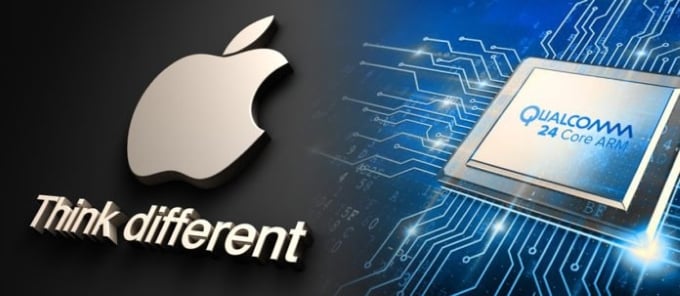Apple and Qualcomm are business partners as Apple utilise Qualcomm’s modem chips on its phones. But surprisingly, the two firms have been embroiled in a series of lawsuits. In one of the ongoing lawsuits, Qualcomm claims Apple has been stealing its wireless technology for several years in order to eventually end its reliance on Qualcomm components. The claim also includes that Apple gave the code that patently belongs to Qualcomm to rival Intel, in order to boost Intel’s modem speeds which aren’t as fast as Qualcomm’s.
The lawsuit which has been running for almost two years now also includes details of how Apple was able to lay their hands on Qualcomm’s code. The filing revealed that Apple and Qualcomm had struck a deal back in 2009 which gave Apple access to the chipmaker’s secret code. Apple demanded access to Qualcomm code in a bid to integrate it more deeply into the iPhone. An agreement was reached but on the condition that the code can only be used in products with Qualcomm chips and can’t be shared with third parties. The agreement also includes that the code would be robustly protected in the same manner in which Apple protects its own code.
The complaint states that Apple has been sharing its code with Intel and that this began several years back. Qualcomm says it got a tipoff from an anonymous posting on a website that samples the opinion of people who claim to have been laid off by Intel. The poster, claiming to be from an Intel employee, said that Intel engineers “were told to ignore intellectual property rights when designing the modem” and that there was “a conspiracy to copy Qualcomm’s technology” using help from Apple. Apple allegedly declined to investigate.
Read Also: Qualcomm Vs Apple: Qualcomm is Suing Apple For Alleged Breach Of Contract
We must note that this isn’t the first time this allegation is coming out but more details seem to keep emerging by the day. Apple has refused to respond to the allegation but on its part, the iPhone maker is accusing Qualcomm of demanding unreasonable fees for the use of its smartphone modem. We see this lingering for years as both companies have the resources to keep the lawsuit running. However, an out of court settlement is also a possibility.
(via)







